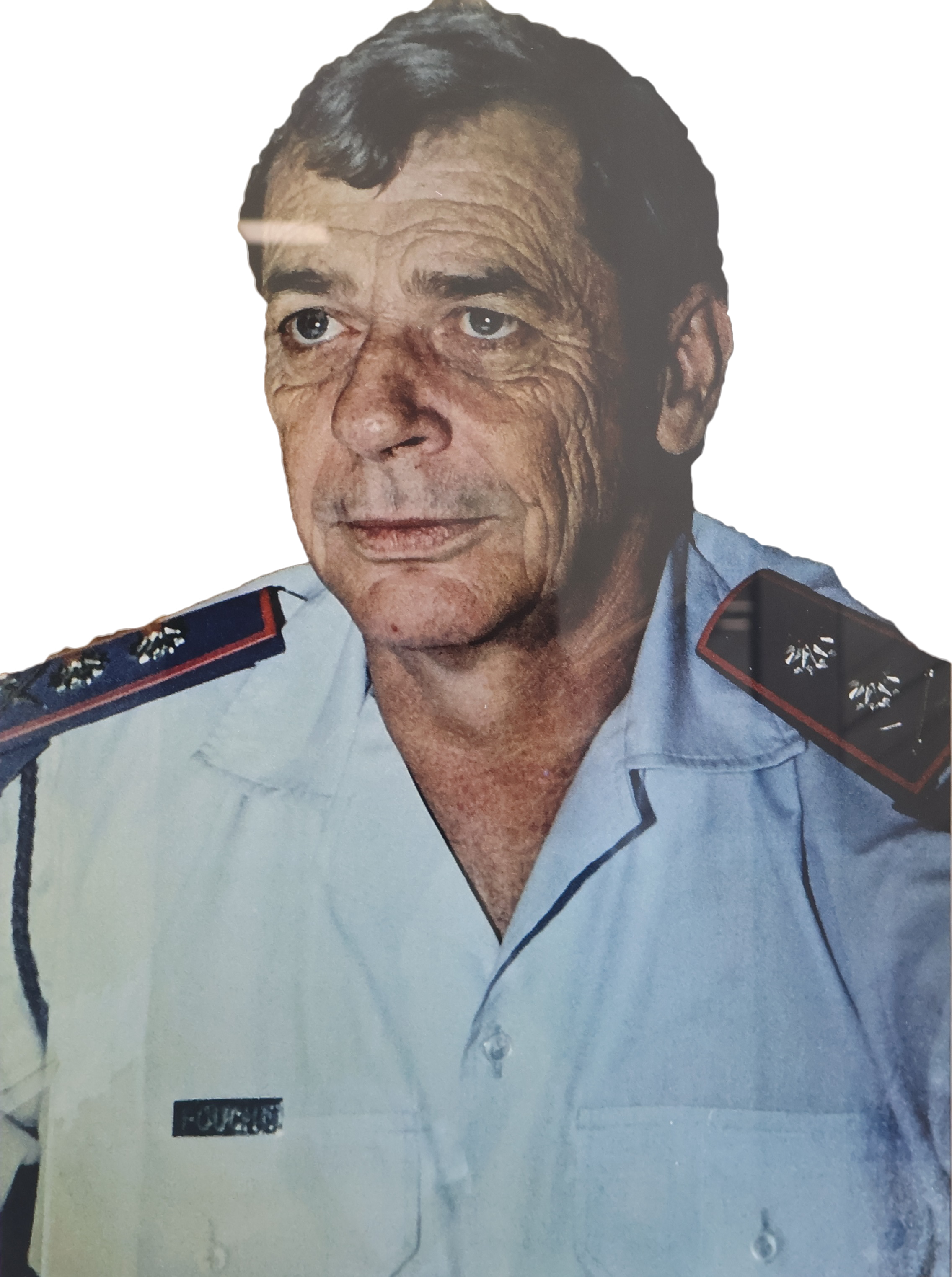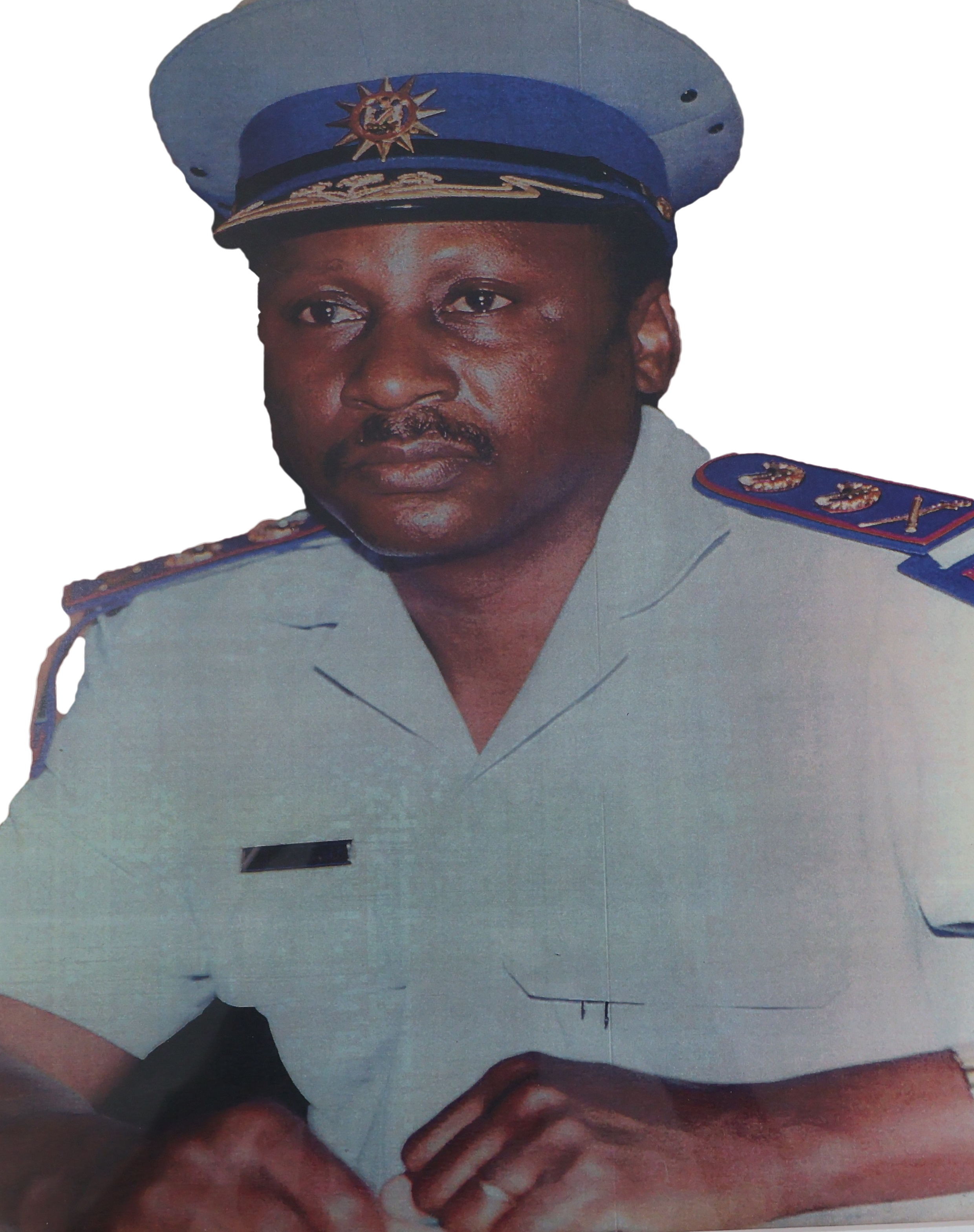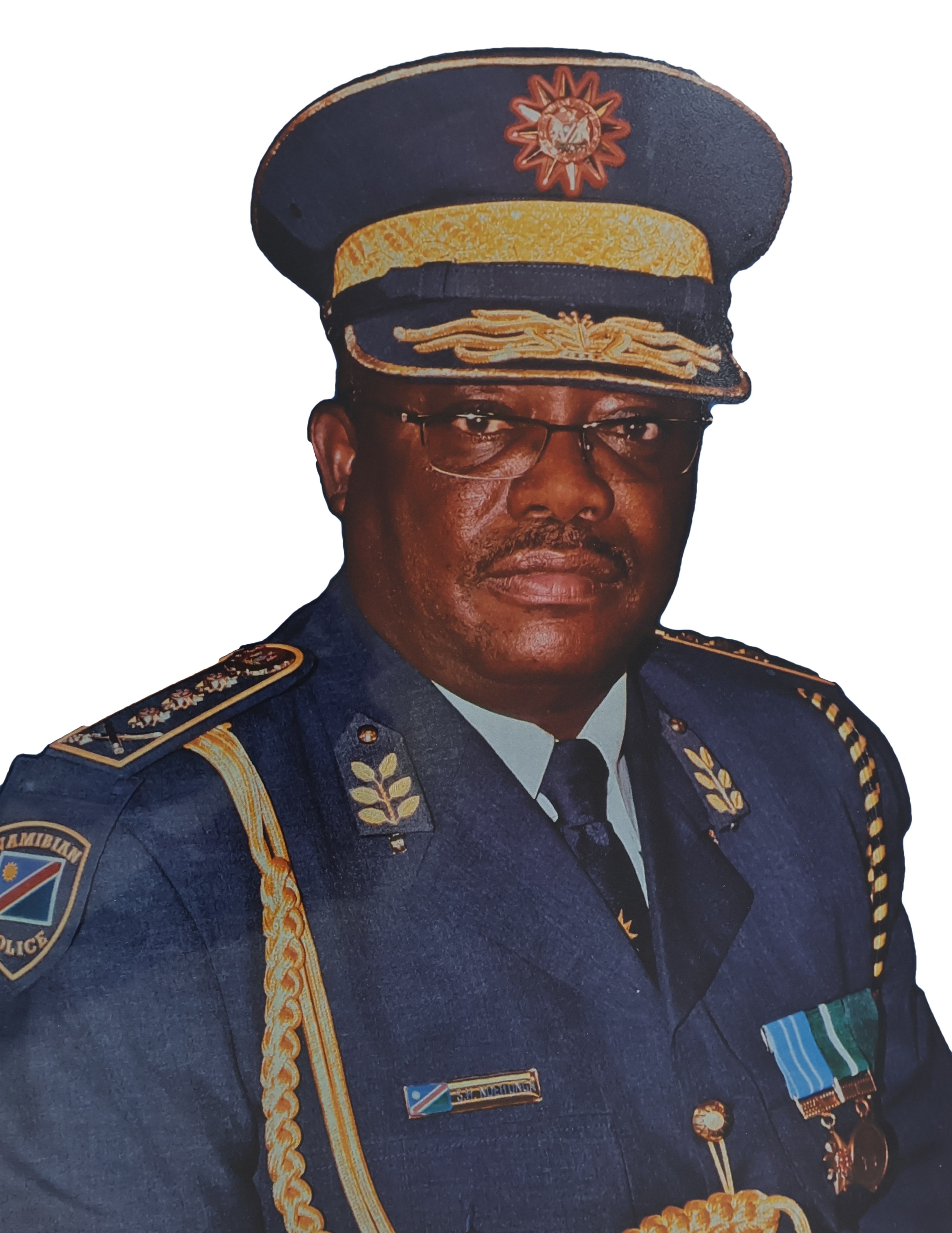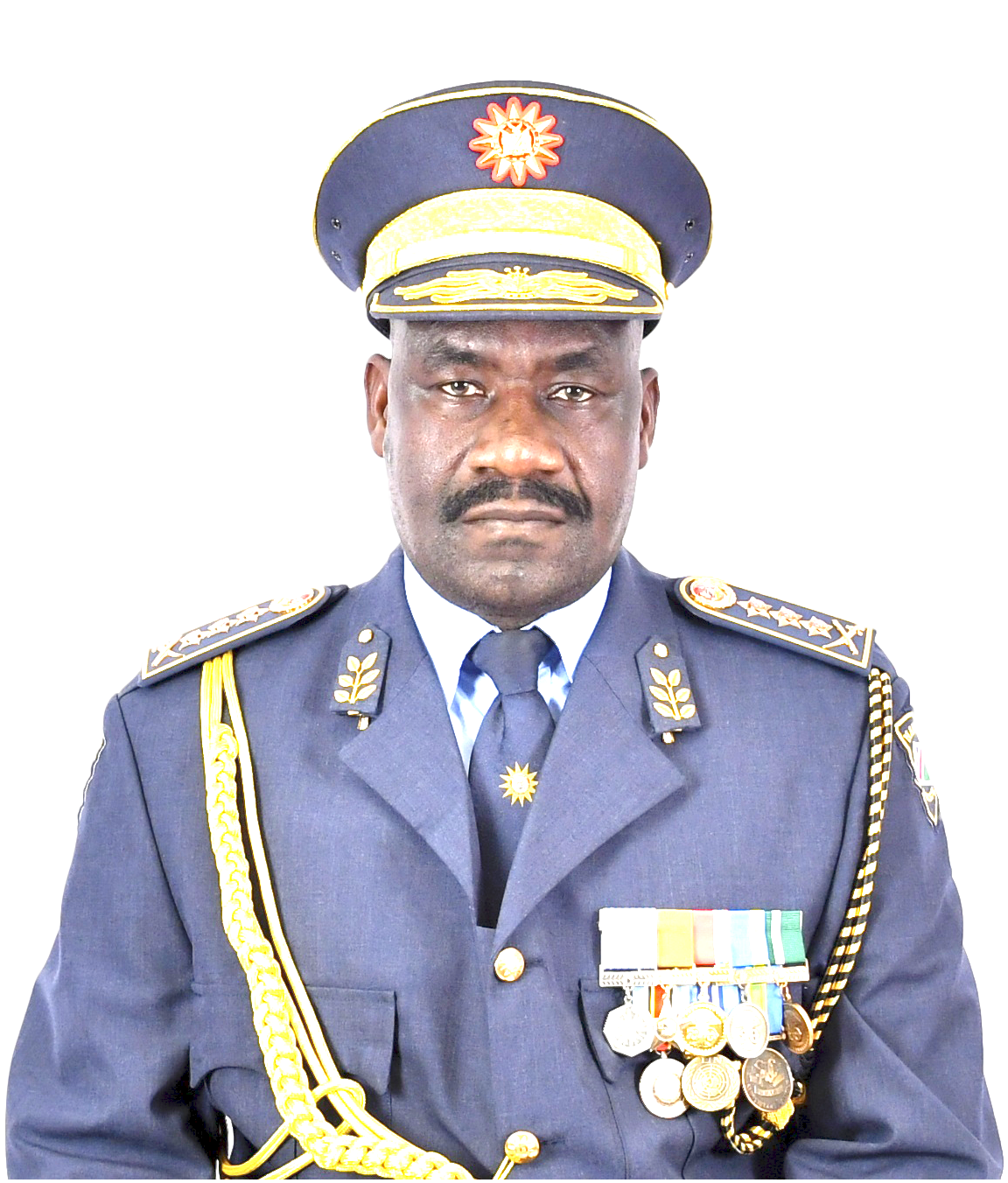ABOUT US - NAMPOL
NAMPOL Training Centers
Developing professional law enforcement officers for Namibia
Ruben Danger Ashipala Training Center
Ruben Danger Ashipala Police Training Centre (RDAPTC) situated in Oshana Region, is one of the Namibian Police Force existing Police Basic Training Centre. The aims and objectives of the Police Basic Training are to ensure transformation of individuals from a civilian to that of a uniformed member. The Centre also provides refresher courses for the already serving members of the Force.
Pre-independence the Centre was used as a military base by the former South African Territorial Forces and after independence it was taken over by Development Brigade Co-operation (DBC). After the downfall of DBC, the Centre was placed under the Ministry of Work, Transport and Communication. The Namibian Police Force has been conducting its Police Basic Training there from 1999 to date and was previously known as Ondangwa Police Training Centre.
Read more
On 14th December 2012 the Centre was renamed to Ruben Danger Ashipala Training Centre (RDATC), named after a PLAN combatant and a liberation icon late Commissioner Ashipala Michael Ruben well known as Danger. He was a commander, a principled officer who upheld the law and order, which he stood for and defended throughout his policing career until his death on 10th May 2010. The late Commissioner Ashipala was a man with a very rich history, especially with regard to his contribution to the struggle for the independence of Namibia.
Physical Address:
Ruben Danger Ashipala Police Training Centre
Ondangwa Town, Oshana Region
Tel: +26465240842
Email: rubendangerashipala@gmail.com
Postal Address:
Private Bag 2010
Ondangwa
Current Commandant: Dep. Comm. Ndafudha Ndeshipanda Iifo
Email: NNIifo@nampol.na
Cell: +264811294078
Tel: +26465240842
Simon Mutumba Training Center
Simon Mutumba Mutumba Police Training Centre was established as a training facility since 2014. It is geographically situated on the outskirts of Katima Mulilo Town, Zambezi Region, Republic of Namibia.
The training Centre is named (posthumously honoured) after the late Chief Inspector Simon Mutumba Mutumba who was a liberation struggle icon, who after Namibia's independence served as a Soldier and Police Officer respectively. The Training Centre is mainly utilized for Basic Police Training, Advanced Training Courses and other Staff development programmes (workshops).
Read more
The current Commandant of Simon Mutumba Mutumba Police Training Centre is Deputy Commissioner Auster Linanga LINANGA.
Cellphone Number: +264812119719 / +264812042766
Telephone Number: +26466254982
Physical Address:
Simon Mutumba Police Training Centre
Katima Mulilo, Zambezi Region
Postal Address:
Private Bag 2071
Katima Mulilo
Email: simonmutumbatc@nampol.na
Pius Joseph Kaundu Training Center
Pius Joseph Kaundu Police Training Centre, located on Farm Houmoed No. 717, serves as a vital institution for the Namibian Police Force. Situated about 85 km east of Gobabis in Omaheke Region, this government-owned property was allocated specifically to support the training needs of the Namibia Police Force.
The Centre proudly bears the name of the late Chief Inspector Pius Joseph Kaundu, who served with dedication as the Police Regional Commander of Omaheke Region until his untimely passing on 22 February 1999.
Read more
Chief Inspector Kaundu's legacy is honored through this institution, which plays an essential role in maintaining the high standards of Namibia's law enforcement.
The primary mission of the Pius Joseph Kaundu Police Training Centre is to equip new recruits with the skills, knowledge, and discipline necessary for effective policing. It also provides ongoing professional development through refresher courses designed to keep active-duty officers up to date with current policing practices and legal developments. Additionally, the Centre offers advanced training programs tailored to both police officers and other key stakeholders, ensuring a well-rounded approach to law enforcement that serves the wider community's needs.
Under the capable leadership of Deputy Commissioner Lavinia Maude Zimmer, the Centre operates with commitment to excellence and continuous improvement. Through rigorous training and education, Pius Joseph Kaundu Police Training Centre upholds the values of the Namibian Police Force, contributing to the safety and security of communities throughout the country.
Tel: +26462568582
Email: pjkptc@gmail.com
Physical Address:
Pius Joseph Kaundu Police Training Centre
Farm No 717 Houmoed
Omaheke Region
Postal Address:
Private Bag 2265
Gobabis
Omaheke Region
Current Commandant: Dep. Comm. Lavinia Maude Zimmer
Email: LZimmer@nampol.na
Cell: +264812074501
Tel: +26462568582
Namibian Police Force
Complete Historical Record
Inspectors-General of NAMPOL

Lt. Gen Peter Abraham Fouche
1990–1992

Lt. Gen Raonga Jesaya Andima
1992–1995

Lt. Gen Lucas Petrus Hangula
1995–2005

Lt. Gen Sebastian Ndeitunga
2005–2022

Lt. Gen Joseph Shikongo
2022–Present
Historical Timeline of Policing in Namibia
German Colonial Era (1905-1915)
The first normal policing in the country was carried out by the German "Kaiserliche Schutztruppe" as part of their overall responsibilities. This continued until 1st March 1905, when the first police force was established in the form of the "Kaiserliche Landespolizei für Deutsch-Südwestafrika."
By 1907, this police force had grown to an establishment of 400 members. In the same year, it took delivery of its first motor vehicle. However, for many years, the standard means of transport remained the horse and camel. Camels were mainly used in areas like Stampriet, Tsinsabis, and Witdraai. The last camels were withdrawn from service just after the Second World War.
South African Administration (1915-1990)
The "Landespolizei" ceased its policing role with the South African invasion during the First World War. After the South African Main Force withdrew, five regiments of the South African Mounted Riflemen stayed behind to handle garrison and policing duties.
Meanwhile, the recruitment of a military police force began in Bloemfontein, South Africa. In February 1916, this new force took over the policing function with 52 officers and 1,100 other ranks. That same year, a Training Centre with 16 instructors was established to train the largely young and inexperienced recruits. They underwent a five-month intensive training course. The Training Centre also trained police dogs, following the example set by the "Landespolizei," who had used dogs for detection purposes.
The military police force was disbanded on 31st December 1919, and its members were integrated into the South West African Police Force. In May 1920, a detective unit was established. Mounted police patrols in the Khomas Hochland typically lasted for three weeks, while some camel patrols could last as long as 65 days.
In 1939, the South West African Police Force was disbanded, and the policing responsibility was taken over by the South African Police. On 1st April 1981, policing duties were transferred to a newly established South West African Police Force.
Establishment of NAMPOL (1990)
The Namibian Police Force (NAMPOL) was established on 21 March 1990, following Namibia's independence and in conformity with Article 118 of the Namibian Constitution. On 26 November 1990, the Police Act, Act No.19 of 1990 was enacted and signed into law by His Excellency the Founding President of the Republic of Namibia Dr Sam Nujoma. Since then, 26 November is commemorated as the Namibian Police Day.
NAMPOL replaced the South West African Police (SWAPOL) and started with about 2000 men and women in uniform in 1990 and to date has grown tremendously, filled with trained and experienced men and women in uniform including the civilian component of the Force.
NAMPOL's Mandate and Structure
The Namibian Police Force, in carrying out its functions:
- Preservation of the internal security of Namibia
- Maintenance of law and order
- Investigation of offenses or alleged offenses
- Prevention of crime
- Protection of life and property
is guided by the Constitution of the Republic of Namibia, the Police Act and the Criminal Procedure Act, Act No.51 of 1977, as amended.
The Force operates under a centralized command, led by an Inspector General (IGP) with the rank of Lieutenant General (Lt-Gen.), supported by two Deputy Inspector Generals, overseeing administration and operations. NAMPOL's command structure ensures efficiency, with 16 directorates and 14 regional commands headed by Commissioners and five 1st divisions headed by Deputy Commissioners.
Leadership and Evolution
In its formative years, NAMPOL prioritized professionalization and public trust. Under the leadership of Namibia's first Minister of Home Affairs, Hon. Hifikepunye Pohamba and the first Inspector General, Lt-Gen. Peter Abraham Fouché (1990–1992), the groundwork was laid for a disciplined and operationally effective Force.
Lt-Gen. Jesaya Raonga Andima (1993–1995) succeeded General Fouché and continued solidifying NAMPOL's structure, transitioning the Force from its colonial-era policing model. This period saw the introduction of community policing strategies, particularly in rural areas, as a means to strengthen relationships between law enforcement and the public.
The late 1990s and early 2000s were defined by modernization and expansion under Lt-Gen. Lucas Hangula (1995–2005) and Hon. Jerry Ekandjo as Minister of Home Affairs. Technological advancements became a priority, with the introduction of computerized crime databases and improved communication systems. To address emerging threats, NAMPOL established specialized units and these developments enhanced the Force's ability to combat crime effectively and reinforced its presence nationwide.
The 2010s marked a period of reform and capacity-building. Lt-Gen. Sebastian Ndeitunga (2005–2022) spearheaded initiatives to improve police visibility, combat organized crime, and enhance community engagement under the tenures of Hon. Nickey Iyambo (2008–2010), Hon. Nangolo Mbumba (2010-2012), Hon. Immanuel Ngatjizeko (2012-2015), Hon. Charles Namoloh (2015-2020), Hon. Frans Kapofi (2018-2021) and Hon. Albert Kawana as Ministers of Safety and Security.
General Ndeitunga is the longest-serving Inspector General of the Namibian Police Force and played a pivotal role in shaping NAMPOL's modern operational framework. His tenure saw the establishment of the Namibian Police Training Academy, the integration of advanced policing methods and increased international cooperation. Specialized units such as the Air Support Directorate, which operates helicopters, were introduced to expand the Force's operational capabilities.
With the adoption of the National Gender Policy, NAMPOL has prioritized gender representation, with more women joining the ranks and rising to leadership positions; hence women are part of the Police Senior Management Cadre. The Namibian Police Force has a woman as a Major General, Regional Commanders, Head of Directorates and Divisions.
In 2022, Lt-Gen. Joseph Shikongo assumed command as the Inspector General. With extensive experience in law enforcement and international peacekeeping, his leadership has focused on modernizing the force, improving response times and integrating new technologies into the Force.
Modern Developments
Throughout its history, NAMPOL has remained under the jurisdiction of the Ministry of Safety and Security and/or Ministry of Home Affairs, Immigration, Safety and Security with successive ministers refining policy and oversight.
NAMPOL's evolution reflects a commitment to discipline, modernization, and service to the Namibian people. From its inception, the force has continually adapted to new challenges, reinforcing its role as the primary custodian of law and order in the country. Its ongoing pursuit of professionalization, technological advancement, and community-based policing ensures that it remains a steadfast pillar of Namibia's security infrastructure.
NAMPOL has also adopted the concept of Community Policing which is primarily aimed at moving away from the traditional way of policing to a modern day, democratic approach that incorporates the proactive participation of all stakeholders. These stakeholders include various forums in the fight against crime, such as Neighbourhood Watches, Men and Women Networks against Crime, Youth against Crime, Business against Crime, and many others.
NAMPOL has and continue working toward making policing more effective using technology. The Force launched and continue to implement the E-Policing system since 2014, a project which is aimed at transforming the policing processes from manual work to automation. With the demands for growth and expansion, a number of capital projects have been undertaken and various infrastructures have been erected in many parts of the country, especially in formally neglected areas. National and Regional Headquarters were established, police stations were renovated and restructured while specialized units and new police stations were set up.
NAMPOL is a member of the International Criminal Police Organization (ICPO-INTERPOL) since 1992 and has been actively participating in INTERPOL's activities. To support the maintenance of peace, stability and economic development globally, NAMPOL commenced with the deployment of Individual Police Officers (IPO) as peacekeepers in United Nations and African Union Peace Support Operations in 1998.
Moreover, Police Attachés are deployed in some of the neighbouring sister countries, namely Angola, South Africa and Zambia, to further enhance the excellent ties of police cooperation existing between the countries. NAMPOL made significant strides and evolved tremendously over the last decades and continue to make a significant contribution to the realisation of the national goals, as set out in the country's guiding policies.
The information provided above was verified with the National Archives of the Ministry of Basic Education & Culture.
The Namibian Police Force 24th Anniversary
The Graduation of 966 Cadet constables and the Launch of Turn back Crime Campaign on 20th February 2015
- It took the whole combined teams of the Namibian Police Force not even a month to put everything on rail and make the event a very sounding success on the 20th February 2015 which took place at Oshakati Independence Stadium.
- As per Namibian Police Force Culture, Namibian Police Force before the main event new Cadet Constables display their drilling skills and Police Technics acquired during their training at Ruben Danger Ashipala's Training Centre in Ondangwa. Whereby this has also become a combination of displaying Namibian Police Force's capabilities show casing its strength such as Vehicles, Airpower, and many more at its disposal.
- The onlookers flocked to the streets of Ongwediva and Oshakati to witness the commendable Strong Namibian Police Force led by both the Deputy Inspector General for Operations Major General James Tjivikua and Oshana Regional Commander Commissioner Ndahangwapo Kashihakumwa who were on the lead during the street March.
- Proudly waving to the Public onlookers on the sides of the Ongwediva and Oshakati Streets, the public ululated by excitement and proudness of their sons and daughters whom they know will add to the number of the existing Law Enforcement officers dedicated to serve the nation as well going extra miles to make Namibia a free crime society, as well as complying with their Vision of Protecting and Serving the Namibian people and all those found within the boundaries of the Republic of Namibia.
By: W/O. Lazarus
NAMPOL Uniform Regulations
Standardized dress codes for all NAMPOL officers and divisions
Dress Code Regulations
Standard Uniforms
Specialized Uniforms
Special Units
Ceremonial


Israel Patrick Iyambo Police College (IPIPC)
Empowering Excellence, Training for Policing Mastery
About the College
The Israel Patrick Iyambo Police College (IPIPC) is named after one of Namibia's gallant freedom fighters, the late Israel Patrick Iyambo (known as Luganda), who was one of the PLAN combatants engaged in the first battle against South African occupational forces on 26 August 1966 at Omugulugwombashe in northern Namibia.
Located in Windhoek, Namibia, IPIPC serves as an in-service training institution that offers various capacity-building training interventions to upskill and reskill members of the Namibian Police Force and external stakeholders.
Recognizing that law enforcement is dynamic, the Police College offers a wide range of job-specific ongoing professional development training programs to police officers and external stakeholders.
Our Mission
To develop professional, disciplined, and ethical police officers through quality training and education that meets international standards, empowering excellence and training for policing mastery.
Download our College JournalOur Commitment
"Empowering Excellence, Training for Policing Mastery"
IPIPC is dedicated to advancing professional law enforcement capabilities through comprehensive training programs
Training Programs
IPIPC offers a comprehensive range of training programs designed to meet the evolving needs of modern law enforcement:
Leadership Development
- Supervision and Management for Sergeants
- Instructional Skills Course
- Community Policing and Crime Prevention
- Problem Solving and Community Engagement Strategies
- Station Commanders Course
- Staff Officers Course
Criminal Investigation Training
- Basic Investigative Techniques
- Case Docket Management
- Interview Skills
- Legal and Procedural Aspects of Investigation
- Human Rights in Investigations
- Specialized Investigations:
- Stock Theft
- Gender-Based Violence
- Financial Crime and Money Laundering
- Basic Drug Identification
Traffic and Driving Training
- Traffic Law Enforcement Training
- Basic and Advanced Driving Skills
- Traffic Control Strategies
- Road Safety Management
Specialized Tactical Training
- Close Protection (VIPP) Training
- Public Order Management
- Tactical Operations
- Crisis Intervention
ICT Training
- Radio Communication Skills
- Computer User Skills
- Digital Investigation Techniques
Specialized Programs
- Forensics Pathology Technician Training
- Border Guard and Aviation Training
- Narcotics and Explosives K9 Handlers Training
Program Organogram
IPIPC's comprehensive training curriculum is structured around the following specialized departments:
- Generic and Specialized Criminal Investigation
- Leadership Development Programs
- Traffic and Driving Training
- Closed Protection (VIPP) Training
- ICT Training (Radio & Computer User Skill)
- Public Order Management and Tactical Training
- Forensics Pathology Technician Training
- Border Guard and Aviation Training
- Narcotics and Explosives K9 Handlers Training
These programs are tailored to meet the specific needs of members performing specialized duties within the Namibian Police Force and external stakeholders.
Visit the College
Location
Israel Patrick Iyambo Police College (IPIPC)
Windhoek, Namibia
Contact
Tel: +264 61 209 9111
Email: college@nampol.gov.na
Visiting Hours
Monday - Friday: 8:00 - 16:00
Weekends: By appointment only
NAMPOL Service Charters
Standardized service commitments across NAMPOL
Explosives Control Division
Responsible for controlling explosives.
Download CharterOffice of the Senior Staff Officer Administration
The Office is responsible for providing administrative support to the Force.
Download CharterNamibian Police Forensic Science Institute (NPFSI)
Responsible for providing scientific services.
Download CharterINTERPOL-National Central Bureau (NCB) Windhoek
Serves as the national point of contact for INTERPOL Member Countries..
Download CharterLegal Services Directorate
Responsible for providing legal advice and facilitates civil claims and litigation.
Download CharterGender and Welfare Directorate
Responsible for providing Employee wellness services in the Force.
Download CharterCrime Prevention Directorate
Responsible for coordinating crime prevention activities
Download CharterCriminal Investigation Directorate
Responsible for investigating and coordinating activities related to crime.
Download CharterBorder and Infrastructure Protection Directorate
Responsible for protecting and safeguarding the national border, entry points, vital government infrastructure and territorial water.
Download CharterAir Support Services Directorate
Responsible for rendering air support services to the Force.
Download CharterVery Important Persons Protection Directorate
Responsible for protecting national and international Very Important Persons (VIPs).
Download CharterPolice Conduct and Investigations Directorate
Responsible for investigating criminal cases, allegations and misconducts against police officers..
Download CharterTraffic Law Enforcement Directorate
Responsible for ensuring road safety by enforcing the Road Traffic and Transportation Act and Regulations (Act No. 22 of 1999)
Download CharterTraining and Development Directorate
Responsible for providing basic and advanced policing trainings.
Download CharterPolice Station
Responsible for providing safety and security services to the public.
Download CharterSpecial Reserve Force Division
Responsible for conducting high-risk operations
Download CharterPolicy, Planning and Development Directorate
Responsible for coordinating policy and organizational development, planning and project management.
Download CharterPolice Intelligence Directorate
Responsible for gathering all relevant information on threats to public order and security.
Download CharterFinance Directorate
Responsible for maintaining prudent financial management in line with Laws and Regulations governing State Funds.
Download CharterHuman Capital Management Directorate
Responsible for providing administration support and advisory services on issues pertaining to Human Resources management, planning and development within NamPol and ensuring that rules and regulations are correctly understood, implemented and complied with.
Download CharterInformation Communications Technology Directorate
Responsible for providing Information Communication Technology services for the Namibian Police Force.
Download CharterProcurement and Logistics Directorate
Responsible for providing and maintaining goods and services
Download CharterPublic Relations Division
Responsible to serve as the main link between the public and the Namibian Police Force in promoting and protecting the corporate image of the Force.
Download CharterOffice of Principal Staff Officer
Responsible for overseeing the overall administration of the Office of the Inspector General of Police.
Download Charter

